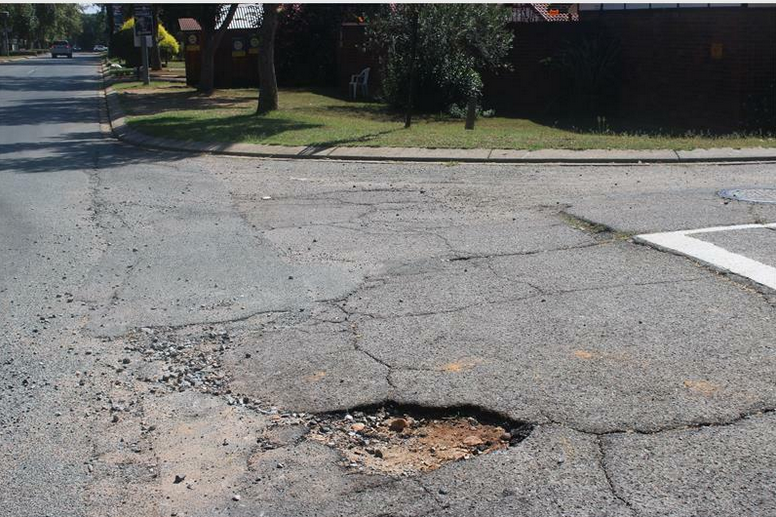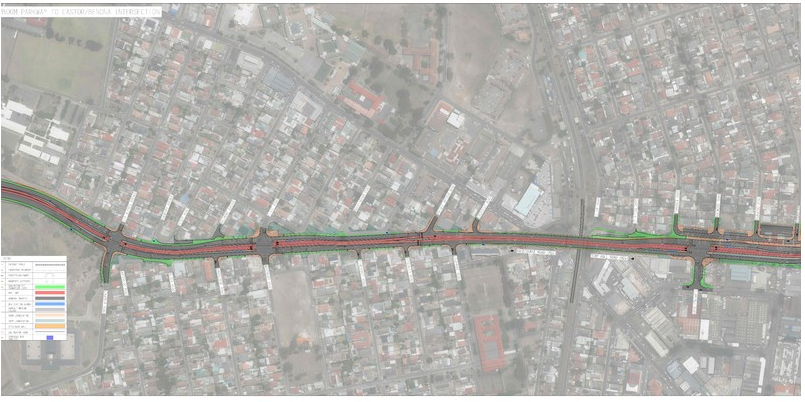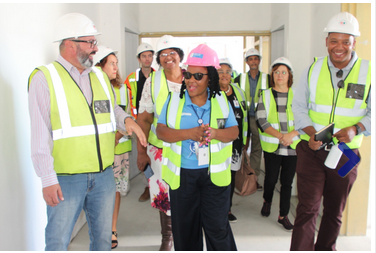How credible is your builder

07-05-2019
Read : 131 times
Bizcommunity.com
Source
When you are about to spend five-figure rands (or more) on a new home build, you need some reassurance that the home builder you appoint has the right credentials.
Of all the things to do when building a new home, checking the building contractor’s credentials should be paramount, and such due diligence is made easier by the existence of the National Home Builders Registration Council (NHBRC). Tshepo Nkosi, responsible for Marketing, Communication and Stakeholder Relations at the NHBRC explains that according to the Housing Consumers Protection Measures Act 95 of 1998, all home builders and sub-contractors are required by law to register with the NHBRC before commencing any new home building project.
“The NHBRC is mandated to protect consumers interests by setting building standards, and regulating the home building industry,” says Nkosi, “In essence, therefore, we ensure the quality of homes built in the country, but only if the home or the builder is registered with us. Enrolling one’s home with us is also necessary because it provides the housing consumer with access to a five-year Warranty Fund towards any structural defect that may manifest after occupation of a newly-built home.”
Builder’s registration
The aforementioned two conditions are fundamental NHBRC routes to help consumers facilitate a quality build. The first, that of ensuring a home builder and/or sub-contractor is registered with the NHBRC, can be verified by a homeowner via the organisation’s helpline, website, or at any of 23 NHBRC customer care offices in the country.
“A homeowner can also ask the builder to present either their NHBRC Registration Certificate, or Registration Renewal Certificate, the latter indicating their membership is valid for a period of 12 months,” says Nkosi. “Both provide assurance to the homeowner that the proposed contractor has demonstrated technical, financial, management and construction abilities and has agreed to abide by a Code of Conduct, and the rules and regulations laid down by the NHBRC, as well as heeding the technical standards as prescribed in the NHBRC’s Home Building Manual.”
Warranty Fund
The second route of protection for a homeowner in a new build situation - which aligns to ensuring a builder is registered with the NHBRC - is to enrol the new home 15 days prior to construction. With the enrolment comes a contribution towards a Warranty Fund, which acts as an insurance cover against major structural defects for five years from date of occupation. “This insurance covers any “snags”, such as cracked plaster, peeling paint, unfinished plumbing or electric works, door handles etc, for the first three months; any roof leakage issues in the first year; and major structural defects that emerge within the five-year warranty period,” explains Nkosi.
If a homeowner has ensured the two steps above, and should they find structural flaws in the final build they have the following rights:
Within three months, instruct a builder in writing, to rectify non-compliance or deviation from terms, plans or specifications of the building agreement;
Within 12 months, also in writing, instruct the contractor to repair roof leaks attributable to workmanship, design or materials; and
Within five years, instruct a builder in writing, to rectify major structural defects that have been caused by non-compliance with the NHBRC technical standards.
NHBRC recourse
Should a contractor fail to respond to homeowner complaints, they may be in contravention of the NHBRC’s Code of Conduct, and by escalation could face a disciplinary hearing. “Provided a home owner follows the formal complaint system, and depending on what emerges from our investigations, appropriate corrective measures are applied,” says Nkosi. “In cases where there are structural problems for example, the NHBRC has legislative powers to compel a builder to fix the problem. If found guilty, and dependent on the severity of the transgression, builders are either warned, fined up to R25,000 per transgression, and/or deregistered.”
Over the past five years the NHBRC has suspended 482 home builders who contravened the Act and prosecuted 1482 home builders for various contraventions including shoddy workmanship, failure to enrol new homes, and contravening the homebuilder’s Code of Conduct.
The burden of delays caused by poor build quality and/or complaints can be lessened however, if a home owner ensures they have at least a basic contract with the builder before commencing construction. This contract must clarify the roles and responsibilities of the two parties so that expectations can be managed, and will further stand the home owner in good stead if there are any legal disputes or contraventions.
A further step, which ideally should be motivated by the home builder, is to ensure NHBRC inspections take place. “Last year we undertook 75,176 non-subsidy and 83,369 subsidised home inspections,” confirms Nkosi. “Each house was subjected to a minimum of four inspections focused on the sub-structure (excavations and foundations); super-structure (floor-to-ceiling height); practical completion (roof and finishes); and storm-water management.” The number of inspection stages largely depends on the enrolment value and the complexity of the design of the house in order to mitigate structural risk.
“It is important to note that NHBRC inspectors concentrate on structural aspects of construction and not contractual finishes such as carpets, colour of paints, etc. Our inspections certainly contribute to the low number of complaints lodged, as indicated by the 512 we received last year, with a remedial claim value of just under R9m.” Informs Nkosi.
In a nutshell
Bearing in mind that the NHBRC parameters only apply to new home construction and not alterations to existing homes nor their aesthetic improvement, the following checklist will assist home owners to plan their build and thereby, hopefully, avoid construction disasters.
Verify an NHBRC-registered builder or sub-contractor. Do this through the NHBRC Customer Care Office number 0800 200 824; the website www.nhbrc.org.za; or by visiting any one of the 23 NHBRC customer care offices countrywide.
Ask to see the builder’s current NHBRC registration certificate, bearing in mind these are only valid for a 12-month period, at which time a Renewal Certificate is issued. Be mindful therefore of the date of issue.
Talk to other housing consumers who have made use of the builder’s services and visit their sites if possible.
Register or enroll a new home at the latest 15 days before building commences to avail of the NHBRC Warranty Cover.
Demand at least four NHBRC inspections during construction.
Never pay the builder in advance – only authorise payment once work has been completed to your satisfaction.
Insist on a signed contract between all parties before the start of construction, and ensure all changes agreed to are included the contract.
Upon completion of construction, make sure that you are satisfied with the quality of your new home before signing a happy letter.
Recent News
Here are recent news articles from the Building and Construction Industry.
Have you signed up for your free copy yet?









